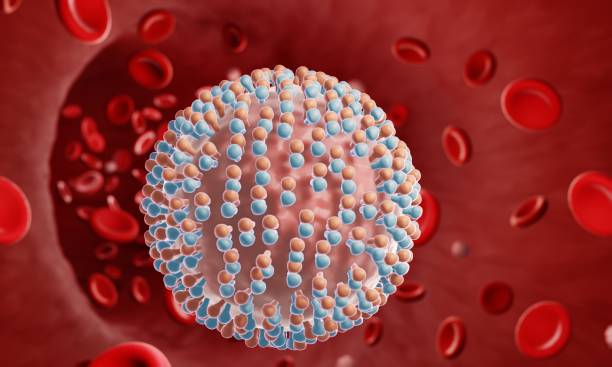Quick Answer: Fatigue from Hepatitis C often feels like deep, unrelenting tiredness, even when you’re sleeping. It can persist for years before diagnosis and is a key reason to test, especially if you’ve had any risk exposure.
This Isn’t Just Burnout: How Hepatitis C Fatigue Really Feels
Let’s be real, fatigue is vague. It doesn’t come with a rash, a cough, or anything you can easily point to. That’s why Hepatitis C can fly under the radar for years. In many people, the liver damage creeps in silently while the only warning sign is a crushing, inexplicable exhaustion.
Here’s how people describe it:
- “Like I was wading through wet cement.”
- “I slept 9 hours and still needed naps.”
- “Everyday tasks felt like climbing stairs with a backpack full of rocks.”
Unlike normal tiredness, this fatigue doesn’t resolve with rest. It lingers, sapping your focus, your sex drive, and your motivation. According to a study in the Journal of Clinical and Translational Hepatology, over 50% of people with chronic Hepatitis C report significant fatigue, often before any liver test comes back abnormal.

Case Study: “I Thought I Was Just Tired. It Was Hep C.”
Janelle, 42, didn’t fit the stereotype. She wasn’t an IV drug user. She didn’t party hard. She ran her own business, kept a clean diet, and took multivitamins. But she was, exhausted, for years.
“I remember thinking, ‘Am I just lazy now? Is this perimenopause?’ My labs were always ‘normal,’ but I could barely make it through my day.”
It wasn’t until a new OB-GYN ran a full panel, including a Hepatitis C antibody test, that the truth came out. Janelle had likely been infected from a shared manicure kit back in college. Antivirals cleared the virus in 8 weeks, and the difference?
“It felt like a fog lifted. I didn’t realize how bad it had gotten until I felt human again.”
This Hepatitis C test kit can give you answers from home, in just minutes.
The Medical Side of Fatigue: What’s Actually Happening in Your Body?
Fatigue from Hepatitis C isn’t “in your head.” Studies suggest that the virus affects not just the liver, but the brain and immune system. Chronic inflammation, disrupted sleep architecture, and subtle liver dysfunction can all contribute to that wiped-out feeling.
A PubMed-reviewed study found that fatigue isn’t always linked to the severity of liver damage, meaning you can feel awful long before labs sound the alarm. This is especially dangerous, because people assume they’re fine if their ALT and AST levels look good.
Neurological symptoms like brain fog, mood swings, and sleep disruption are also common. This is why Hep C fatigue often feels, different,, more like a body-level shutdown than basic sleep deprivation.
What If You’ve Never Injected Drugs? How Hep C Still Finds Its Way In
Let’s bust a myth right here: Hepatitis C is not just a “junkie disease.” That stigma has delayed diagnoses for, millions, of people who’ve never touched a needle.
Here are real ways people get exposed:
- Shared personal care items: razors, nail tools, or toothbrushes
- Tattoos or piercings: done in unregulated environments
- Medical procedures: especially overseas or before 1992 (before blood screening improved)
- Sexual transmission: especially among men who have sex with men, or during rough sex
Janelle got it from a college roommate’s manicure kit. Another patient, Ty, 33, contracted it from a barbershop in São Paulo. The virus doesn’t ask who you are, it just needs blood-to-blood contact. And once it’s in, it can simmer silently for decades.
Check Your STD Status in Minutes
Test at Home with RemediumHepatitis C Test Kit
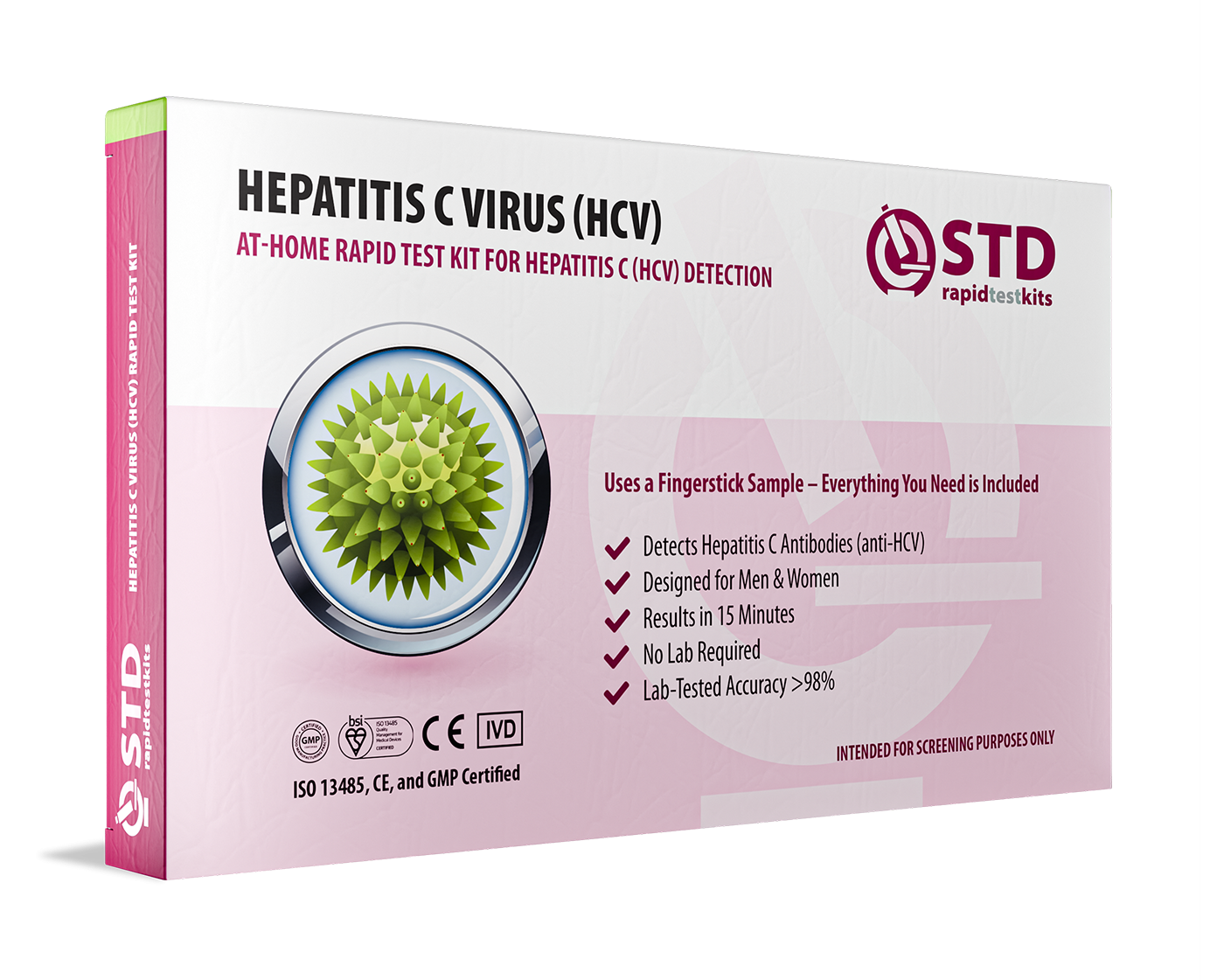
 For Men & Women
For Men & Women Results in Minutes
Results in Minutes No Lab Needed
No Lab Needed Private & Discreet
Private & DiscreetOrder Now $33.99 $49.00
When Fatigue Feels Shameful: The Emotional Weight of a Silent STD
It’s not just physical. Chronic fatigue from Hep C can erode your mental health. People describe feeling “lazy,” “broken,” or like they’re “just not trying hard enough.” One Reddit user wrote:
“I kept thinking I was depressed. Turns out I had a literal virus in my body.”
That’s why trauma-informed care is crucial. Shame delays testing. Stigma fuels denial. And silence keeps people sick. Fatigue doesn’t mean you’re weak, it means something deserves your attention.
It’s time to trade self-blame for clarity. STD Rapid Test Kits offers discreet, fast, FDA-approved home testing.
When Should You Get Tested for Hepatitis C?
If any of these sound familiar, it’s time to test:
- You’re exhausted despite getting enough rest
- Your brain feels foggy more days than not
- You’ve shared razors, needles, or grooming tools with anyone, even once
- You got a tattoo or piercing in a non-sterile environment
- You’ve had unprotected sex (especially anal or with multiple partners)
- You were born between 1945–1965 (high-risk group)
Testing is simple. A combo STD home test kit can screen for Hepatitis C, HIV, Syphilis, and more, all from one sample.
What Happens If You Test Positive?
Don’t panic. Treatment for Hepatitis C today is safe, fast, and over 95% effective. Most people take oral antivirals for 8–12 weeks, and that’s it. No injections, no hospital stays, no endless fatigue.
You’ll start with a confirmation test (HCV RNA), then a doctor may check your liver function and viral load. Many people start treatment within weeks.
And the transformation? Real. In multiple studies, people report feeling dramatically more energized within months of clearing the virus.
“It was like someone plugged me back in,” Ty said. “I got my life back.”
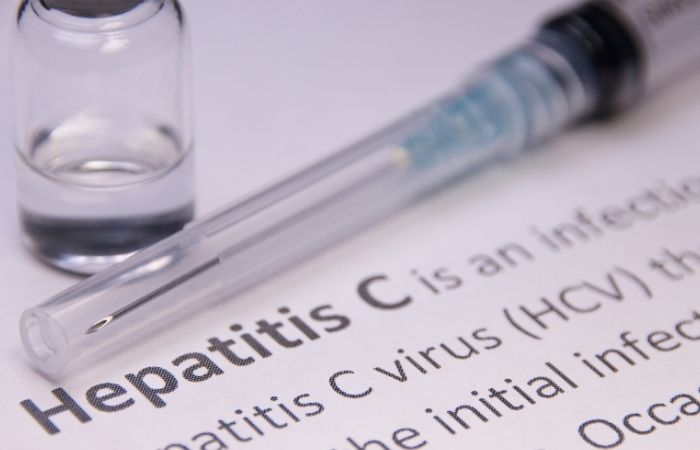
People are also reading: How People Catch Hepatitis B Without Realizing
Is It Just Fatigue, or Something Deeper?
Let’s be honest, fatigue is easy to ignore. But there’s a difference between being tired and being drained by something deeper. If your exhaustion comes with brain fog, low sex drive, irritability, or weakness, it might not just be life. It might be liver.
What makes Hep C fatigue different?
- It doesn’t improve with rest or sleep
- It creeps in slowly, until you forget what normal energy feels like
- It may coexist with anxiety, depression, or sleep disruptions
This isn’t about scaring you. It’s about equipping you. Knowing the signs means you’re not caught off-guard if something deeper is going on.
The Power of Knowing: How Testing Can Shift Your Whole Mental State
The moment you test, whether it’s positive or negative, you regain something vital: certainty. For many, just having an answer is a relief. It ends the spiral of doubt and opens the door to action.
And if you’re negative? Great. You can focus on other causes of your symptoms. If you’re positive? There’s a clear, curable path forward.
This Hepatitis C home test kit is a good place to start. It’s fast, private, and medically reliable.
No more Googling your symptoms at 2 AM. No more self-blame. Just answers.
Why We Need to Talk About Fatigue and Hep C, Openly
Too many people suffer in silence, chalking their fatigue up to stress, parenting, or age. But silence is what lets Hep C win. It’s what keeps people from testing, from speaking up, from getting treated.
Every time someone shares their diagnosis, they make it safer for someone else to get checked. Every confession chips away at the stigma.
If you’re reading this thinking, “Maybe it’s nothing... but maybe I should test”, follow that instinct. You deserve to know. And you’re not alone.
Check Your STD Status in Minutes
Test at Home with RemediumHepatitis B & Hepatitis C Test Kit

 For Men & Women
For Men & Women Results in Minutes
Results in Minutes No Lab Needed
No Lab Needed Private & Discreet
Private & DiscreetOrder Now $49.00 $98.00
For all 2 tests
“Man Up” Culture Hurts More Than It Helps
From a young age, many men are taught to be strong, silent, and self‑reliant. Admitting you might have an STD can feel like a failure, like stepping outside the “tough guy” box. Toxic masculinity insists that seeking medical help or opening up about vulnerabilities is weakness. That stigma isn’t harmless: it’s the reason symptoms can go unreported and infections untreated. Shame becomes the lock, and disclosure the key many never use.
This pressure to “man up” means men avoid testing, minimize symptoms, or delay treatment, often until things worsen. And the emotional toll? Guilt, isolation, and a sense that asking for help means admitting defeat.
When Fear of Rejection Feels Bigger Than the Infection
For many men, the worry isn’t about symptoms, it’s about what happens if they tell. Fear of rejection, judgement, or losing intimacy can feel more painful than the diagnosis itself. Some men report anxiety over telling a partner about an STD, imagining catastrophic reactions even before they ever speak.
Because of this fear, many choose silence, not out of denial, but self‑preservation. The result is emotional distance, misunderstanding, and breakdowns in trust, not just with partners but with one’s own sense of self.
The Silent Treatment: How Some Men Ignore Symptoms Until It’s Too Late
STDs, especially in early stages, can be silent or present only mild discomfort. A little irritation, some spotting, occasional discharge. Many men shrug it off. They compare it to a routine itch or physical stress, not urgent flags. This silence often delays diagnosis until complications emerge.
Ignoring symptoms isn’t rebellion, it’s confusion. And the silence can cost more than embarrassment, it can lead to infections spreading, fertility implications, or long-term health issues like untreated chlamydia or untreated syphilis.
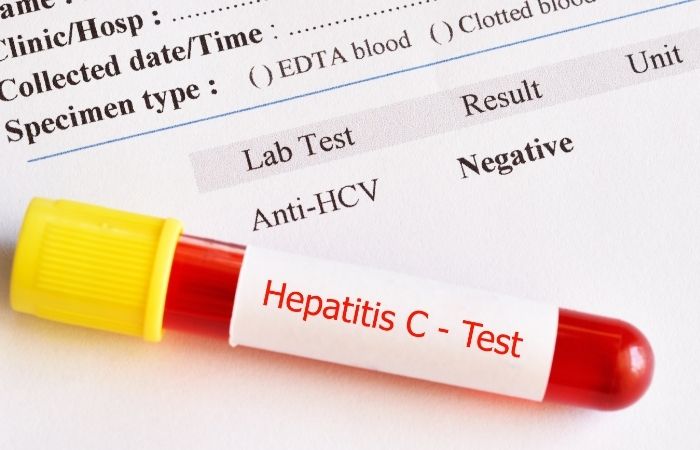
People are also reading: The Most Common Sexually Transmitted Diseases and How They Spread
What Straight Men Can Learn From Queer Communities About Sexual Health Talk
Within LGBTQ+ communities, there’s often more openness about sexual health, regular testing, honest partner conversations, and less shame around status. Queer men have built a language and culture that normalizes discussions about status, boundaries, and disclosure.
Straight men can borrow these lessons: use clear language, prioritize transparency, and respect emotional vulnerability. The payoff? Safer intimacy, stronger trust, and less emotional burden.
Sexual Shame Starts Early, and It Shows Up in Doctor’s Offices
Sexual stigma often roots itself in adolescence, through shame in school sex‑ed, cultural taboos, or religious messaging. These early experiences teach men that asking questions about bodies or sexuality is dangerous. That silence in youth echoes when they sit in a doctor’s office years later.
This learned shame can make men avoid the conversation altogether: skipping vital questions, withholding sexual history, or failing to tell even close providers about symptoms. That barrier narrows the space for proper care and reinforces silence.
Getting Real: What Actually Happens When You Tell a Partner You Have an STD
The moment you admit an STD diagnosis can feel like standing naked emotionally, but it doesn’t always lead to rejection. Many people experience empathy, relief, or willingness to support. Yes, there can be difficult conversations, but there can also be understanding, medical care planning, and deeper trust.
Here’s what often happens: one partner shares a diagnosis, the other asks questions, they decide together on testing options, set safer sex practices or treatment timelines. Over time, honest communication tends to deepen connection rather than erode it.
Not disclosure-proof, but risk-managed. It’s time to move from imagined catastrophes to realistic scripts grounded in humanity and healing.
Check Your STD Status in Minutes
Test at Home with RemediumHepatitis B Test Kit
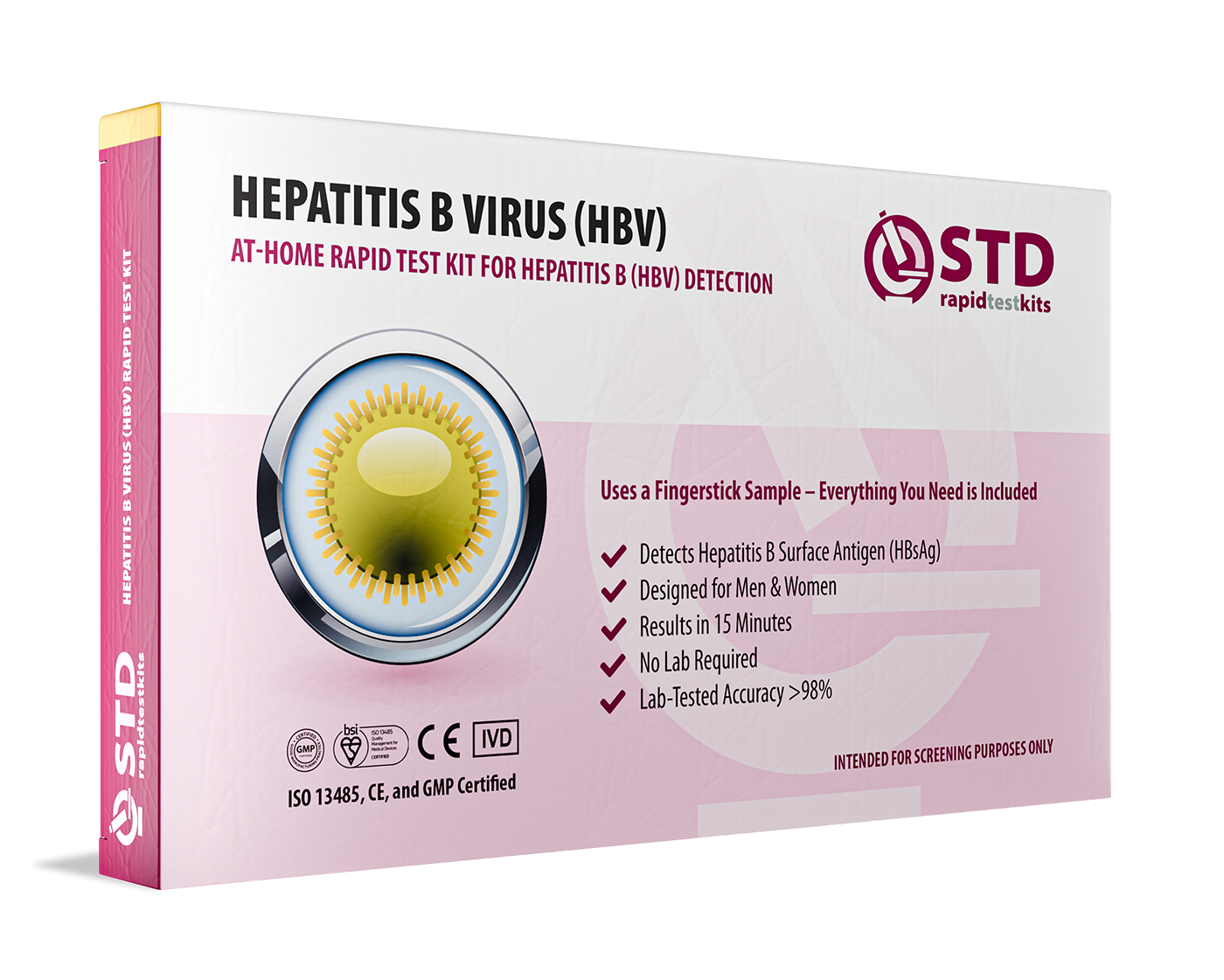
 For Men & Women
For Men & Women Results in Minutes
Results in Minutes No Lab Needed
No Lab Needed Private & Discreet
Private & DiscreetOrder Now $33.99 $49.00
FAQs
1. Can you have Hepatitis C without symptoms?
Yes. Many people with Hep C don’t feel anything for years. Fatigue is often the first or only clue.
2. Is fatigue a common sign of Hepatitis C?
Extremely. Over 50% of chronic Hep C patients report unexplained fatigue, even with normal liver tests.
3. What does Hep C fatigue feel like?
It feels like deep, body-wide exhaustion that doesn’t go away with sleep. People also report brain fog and low motivation.
4. Do I need to have injected drugs to get Hep C?
No. Sharing razors, getting tattoos, or even past medical procedures can expose you to Hepatitis C.
5. Is Hepatitis C curable?
Yes. Modern treatments cure over 95% of patients in just 8–12 weeks using oral antivirals.
6. What kind of test checks for Hepatitis C?
First, an antibody test. If positive, a follow-up HCV RNA test confirms active infection. At-home kits can handle the first step.
7. Can I test for Hepatitis C at home?
Yes. At-home Hepatitis C test kits are private, FDA-approved, and fast.
8. Will my insurance cover Hep C treatment?
In most cases, yes. Especially after a confirmed positive result. Financial help is also available through assistance programs.
9. What happens if I don’t treat Hep C?
It can lead to liver damage, cirrhosis, or liver cancer over time, even if you feel okay now.
10. Can Hepatitis C come back after treatment?
Not if it’s cured. However, reinfection is possible if you're exposed again, so risk reduction matters.
You Deserve Answers, Not Assumptions
Fatigue is frustrating, but it’s not meaningless. Your body is talking. Whether it’s Hepatitis C or not, you have the right to know what’s going on.
Testing is private. Treatment is real. And recovery is possible.
Don’t wait and wonder, get the clarity you deserve. This at-home combo test kit checks for the most common STDs discreetly and quickly.
Sources
1. Clinical Signs and Symptoms of Hepatitis C
2. Hepatitis C – Symptoms and Causes (Mayo Clinic)






